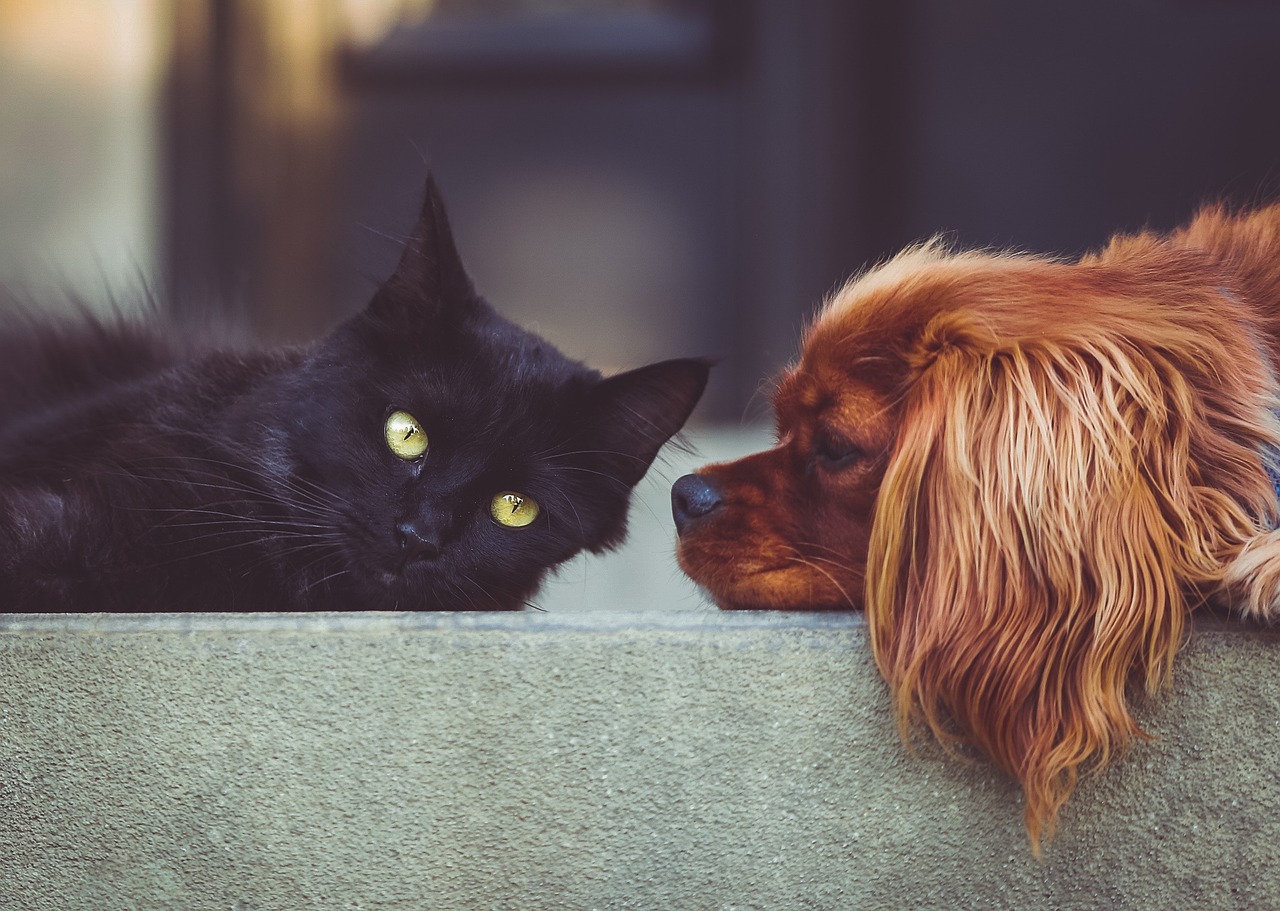Choosing a pet is a significant decision, one that brings years of companionship and joy. But with so many breeds to choose from, how do you know which one is right for you? This guide delves into some of the most popular pet breeds, offering insights into their characteristics, care requirements, and suitability for different lifestyles. Whether you’re a first-time pet owner or looking to add another furry friend to your family, understanding the nuances of different breeds is crucial for a harmonious relationship.
Popular Dog Breeds
Dogs are known as “man’s best friend” for good reason. Their loyalty, affection, and trainability make them fantastic companions. Let’s explore some of the most popular dog breeds.
Labrador Retriever
The Labrador Retriever consistently ranks as one of the most popular dog breeds worldwide. Known for their friendly and outgoing nature, Labs are excellent family pets.
- Characteristics: Intelligent, eager to please, energetic, and good with children. They have a short, dense coat that is easy to groom.
- Temperament: Labs are generally very social and enjoy being around people and other animals.
- Exercise Needs: High; Labs require regular exercise to stay happy and healthy, including daily walks, runs, and playtime.
- Health Considerations: Prone to hip and elbow dysplasia, obesity, and progressive retinal atrophy (PRA).
- Example: A family with young children looking for an active and affectionate dog might find a Labrador Retriever to be a perfect fit. They are great for outdoor activities like hiking and swimming.
German Shepherd
German Shepherds are intelligent, courageous, and versatile dogs. They are often used as working dogs in law enforcement, military, and search and rescue.
- Characteristics: Loyal, protective, intelligent, and trainable. They have a medium-length double coat that requires regular grooming.
- Temperament: Can be aloof with strangers but are deeply loyal to their families. Early socialization is essential.
- Exercise Needs: High; German Shepherds require significant mental and physical stimulation.
- Health Considerations: Prone to hip and elbow dysplasia, bloat, and degenerative myelopathy.
- Example: An active individual or family who enjoys training and providing a job for their dog would be well-suited to a German Shepherd. They excel in obedience and agility competitions.
Golden Retriever
Golden Retrievers are known for their gentle and affectionate nature, making them excellent family pets.
- Characteristics: Intelligent, friendly, and eager to please. They have a long, flowing coat that requires regular grooming.
- Temperament: Patient, playful, and good with children and other animals.
- Exercise Needs: Moderate; Golden Retrievers need daily exercise, but are generally less demanding than Labs or German Shepherds.
- Health Considerations: Prone to hip and elbow dysplasia, cancer, and hypothyroidism.
- Example: A family looking for a gentle and loving companion for their children would find a Golden Retriever to be an excellent choice. They enjoy playing fetch and swimming.
Popular Cat Breeds
Cats bring a sense of calm and companionship to many homes. Here are a few of the most popular cat breeds.
Maine Coon
Maine Coons are known as the “gentle giants” of the cat world. They are large, affectionate, and intelligent.
- Characteristics: Large size, long flowing coat, bushy tail, and tufted ears.
- Temperament: Gentle, playful, and good with children and other pets.
- Grooming Needs: High; Their long coat requires regular brushing to prevent matting.
- Health Considerations: Prone to hypertrophic cardiomyopathy (HCM) and hip dysplasia.
- Example: Someone looking for a large, affectionate cat that enjoys playing and interacting with their family would love a Maine Coon. They are also relatively tolerant of dogs.
Persian
Persian cats are known for their luxurious coats and sweet, docile personalities.
- Characteristics: Long, flowing coat, round face, and short nose.
- Temperament: Calm, gentle, and affectionate. They enjoy being pampered.
- Grooming Needs: Very high; Persian cats require daily brushing and regular baths to maintain their coat.
- Health Considerations: Prone to polycystic kidney disease (PKD), progressive retinal atrophy (PRA), and breathing problems due to their flat faces.
- Example: Someone who enjoys grooming and cuddling with their cat would find a Persian to be a perfect companion. They are best suited for indoor environments.
Siamese
Siamese cats are known for their striking blue eyes and vocal personalities.
- Characteristics: Short, sleek coat, distinctive color points, and bright blue eyes.
- Temperament: Intelligent, social, and vocal. They enjoy interacting with their owners.
- Grooming Needs: Low; Their short coat requires minimal grooming.
- Health Considerations: Prone to progressive retinal atrophy (PRA), amyloidosis, and asthma.
- Example: Someone looking for an intelligent and interactive cat that enjoys communicating with their owners would love a Siamese. They are also known to be very playful.
Popular Small Pet Breeds
Small pets can be just as rewarding as larger animals, offering companionship in a smaller package.
Hamsters
Hamsters are popular small pets, particularly for children.
- Types: Syrian (Golden) hamsters are the most common, but dwarf hamsters are also popular.
- Care: Require a cage with bedding, a food bowl, a water bottle, and a wheel for exercise.
- Temperament: Syrian hamsters are solitary animals and should be housed alone. Dwarf hamsters can sometimes be kept in pairs, but it’s not always successful.
- Considerations: Nocturnal animals, meaning they are most active at night.
- Example: A child learning about responsibility can benefit from caring for a hamster, but adult supervision is essential.
Guinea Pigs
Guinea pigs are social and relatively easy to care for, making them great pets for families.
- Care: Require a cage with bedding, a food bowl, a water bottle, and toys. They also need daily fresh vegetables and hay.
- Temperament: Social animals and should be kept in pairs or small groups.
- Considerations: Need regular handling to become comfortable with people. Vitamin C supplementation is crucial.
- Example: A family looking for a social and interactive small pet would enjoy guinea pigs. They are vocal and will often “wheek” when they see their owners.
Rabbits
Rabbits can be wonderful companions, but they require more care than many people realize.
- Care: Require a spacious cage or hutch, a food bowl, a water bottle, and a litter box. They also need daily hay and fresh vegetables.
- Temperament: Can be affectionate and playful, but require gentle handling.
- Considerations: Need regular exercise outside of their cage. Can be litter-trained. Require specialized veterinary care.
- Example: Someone looking for a quiet and affectionate pet who is willing to dedicate time to their care would enjoy a rabbit.
Popular Bird Breeds
Birds can bring vibrant color and song into your home.
Budgerigars (Parakeets)
Budgerigars, also known as parakeets, are popular because they are relatively easy to care for and can be trained to talk.
- Care: Require a cage with perches, food and water bowls, and toys.
- Temperament: Social birds that enjoy interacting with their owners. Can be trained to mimic speech.
- Considerations: Need regular interaction and enrichment to prevent boredom.
- Example: Someone looking for a small, interactive bird that can learn to talk would enjoy a budgerigar.
Cockatiels
Cockatiels are known for their distinctive crests and gentle personalities.
- Care: Require a cage with perches, food and water bowls, and toys.
- Temperament: Social and affectionate birds that enjoy interacting with their owners.
- Considerations: Need regular interaction and enrichment to prevent boredom. Can be noisy.
- Example: Someone looking for a gentle and affectionate bird that enjoys being handled would enjoy a cockatiel.
Factors to Consider When Choosing a Pet
Choosing the right pet involves careful consideration of your lifestyle, living situation, and personal preferences.
- Lifestyle: Are you active or more of a homebody? Some breeds require significantly more exercise than others.
- Living Situation: Do you live in an apartment or a house? Some breeds are better suited for apartment living than others.
- Allergies: Consider potential allergies to pet dander. Some breeds are considered hypoallergenic.
- Budget: Factor in the cost of food, vet care, grooming, and other supplies.
- Time Commitment: How much time can you dedicate to training, grooming, and playing with your pet?
Conclusion
Choosing a pet is a personal journey that requires careful consideration. Understanding the characteristics and needs of different breeds is crucial for ensuring a happy and fulfilling relationship for both you and your new companion. By taking the time to research and reflect on your lifestyle, you can find the perfect pet to enrich your life for years to come. Remember to always consider adoption as a first option, as there are many wonderful animals waiting for loving homes.



